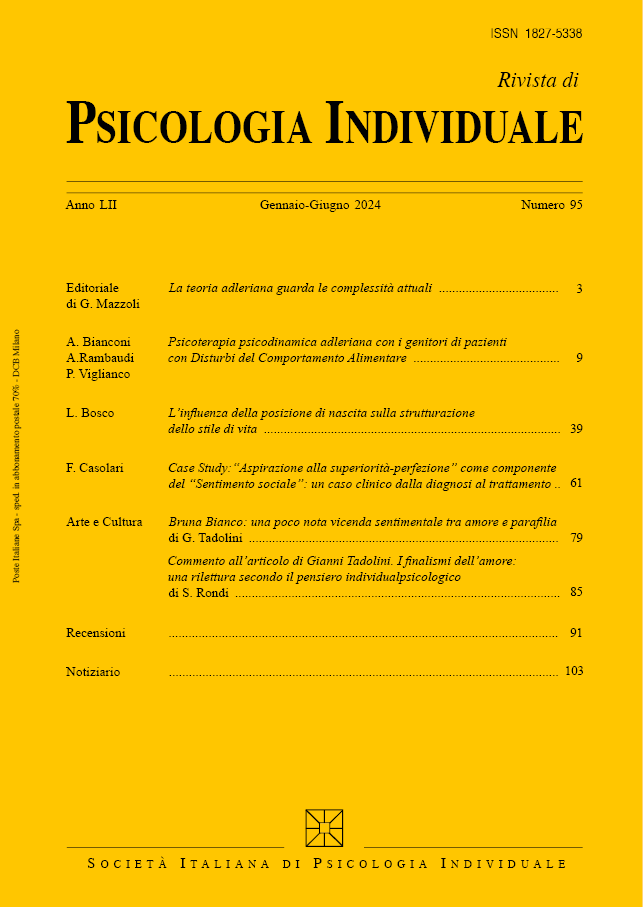Is a minor criminally responsible?
Keywords:
affection, frail child, spoiled child, communication, courage, marginalization, verbal language, nonverbal language, cognitive maturity, medical-legal expertise, collective responsability, school, community spirit, lifestyleAbstract
Part I of the conference report, which deals with the general issue of accountability using cause-and-effect or clinical criteria, is not included in the article, nor are Part II, on the interpretation of juvenile deviance, and Part V, which examines the role of the mother and language, both verbal and nonverbal, in understanding the onset of psychopathy. Part III addresses the issue of the imputability of minors in relation to the collective responsibility of the group to which they belong (Adorno) and their degree of cognitive maturity (Piaget), which, as expressly recognized in the law, does not always correspond to their chronological age. The consultant must therefore assess the minor's personality as a whole and also in light of any objective difficulties (frail children, spoiled children). They will then broaden their investigation to see what opportunities for maturation and social integration have been offered by the family (more or less precarious relationship with the mother, integration with siblings, father who may instill fear or courage to face the world) and the school (which may have integrated him but also marginalized him). This may run the risk that the expert will assume an ‘omniscient’ or ‘pseudo-psychological political’ role, or, conversely, that the magistrate, ‘peritus peritorum’, may ignore him. Part IV specifies that the expert must understand the minor's lifestyle and assess the degree of his or her sense of community and cooperation, which expresses his or her psychological condition. In order to make such an assessment, the expert must be able to share the meanings of the minor's language, appropriate his or her frames of reference, and decode his or her interpretative and interrelational modalities






